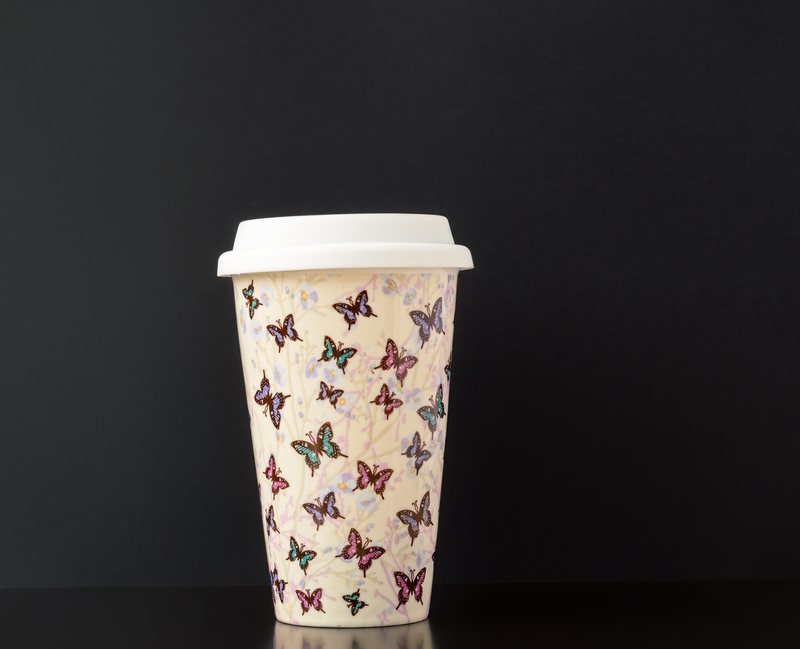Smart Alternatives to Dumping Old Pots and Pans
Old pots and pans often pile up in our kitchens as we upgrade or accumulate new cookware. While tossing them seems convenient, it's not the most environmentally friendly, economical, or creative option. Instead of sending these items to the landfill, let's explore smart alternatives to discarding old cookware that benefit you, your community, and the planet.
Why You Shouldn't Throw Away Old Pots and Pans
Before diving into innovative recycling solutions for used pots and pans, it's important to understand why we should avoid the straightforward route of dumping them:
- Environmental Impact: Metal cookware, especially non-stick pans, contributes to landfill waste and pollution. Many coatings and materials do not biodegrade.
- Resource Conservation: Metals and other materials in pots and pans are often recyclable, reducing the need to mine new resources.
- Potential Utility: Old kitchenware can serve a second life in your home, garden, or community.

Recycling Options for Used Cookware
The first, and often most responsible, alternative to dumping is recycling your old cookware. Here's how:
1. Local Recycling Centers
- Many cities have metal recycling centers that accept old pots and pans. These centers process stainless steel, aluminum, cast iron, and copper.
- Remove any non-metal parts, such as plastic handles or glass lids, before dropping them off.
- Check your municipality's website to find the nearest recycling location and confirm which materials they accept.
2. Scrap Yards
- Metal scrap yards often pay a small amount for old cookware, particularly if it's made of aluminum, copper, or cast iron.
- Gather your pots and pans and call ahead to confirm what types of kitchenware are accepted.
3. Manufacturer Recycling Programs
- Some cookware brands offer take-back or recycling programs. Popular companies like Calphalon and Le Creuset have initiatives where you can return old pots and pans for recycling.
- Check the brand's website for details about mail-in or in-store drop-off options.
Upcycling Old Pots and Pans: Creative Reuse Ideas
Rather than disposing of your pots and pans, consider turning them into unique, functional pieces for your home or garden. Upcycling reduces waste and lets you get creative!
1. Garden Planters
- Drill a few drainage holes at the bottom.
- Paint or decorate the exteriors as desired.
- Fill with soil and use them as planters for herbs, flowers, or small vegetables.
- Tip: Display them on patios or balconies for a rustic look.
2. Bird Baths and Feeders
- Old metal pans can serve as shallow bird baths--just set them on a sturdy support outdoors.
- Hang lightweight pans from trees with rope to create unique bird feeders.
3. Household Organizers
- Hang frying pans with hooks and use them to sort mail, kitchen utensils, or tools in the garage.
- Smaller saucepans can be transformed into containers for keys, coins, or craft supplies.
4. Decorative Wall Art
- Arrange different-sized cookware as an art installation on your wall--paint them in complementary colors for extra flair.
- Use lids as the base for mirrors or clocks.
5. Candle or Lantern Holders
- Fill an old pan with sand or rocks and insert candles for an outdoor centerpiece.
- Add holes to the sides and insert tea lights for a DIY lantern.
Donation: Giving Your Cookware a Second Life
If your pots and pans are still in reasonable condition, donating them is an excellent alternative to dumping. Many people and organizations can still benefit from serviceable cookware.
1. Local Charities and Thrift Stores
- Contact local charities, non-profit organizations, or thrift shops to see if they accept pots and pans.
- Ensure they are clean and safe for use--damaged non-stick coatings, rust, or sharp edges may disqualify some pieces.
2. Community Centers and Shelters
- Homeless shelters, soup kitchens, and women's refuges are often happy to receive functional cookware donations.
- Call ahead to confirm needs and drop-off procedures.
3. Online Gifting Platforms
- List your old pots and pans for free giveaway on platforms like Freecycle, Craigslist, Facebook Marketplace, or Buy Nothing groups.
- This helps connect people who need inexpensive kitchenware with those looking to responsibly dispose of unneeded items.
Repair and Refurbishment: Revive Rather Than Replace
Often, what seems like an unusable pan just needs a little TLC. Refurbishing old pots and pans is cost-effective and rewarding. Here are some ways to bring them back to life:
- Remove Rust: For cast iron or steel items, scrub with steel wool and soak in vinegar to remove rust. Follow with seasoning for cast iron.
- Re-Seasoning: Cast iron and some carbon steel pans benefit from periodic re-seasoning for better performance and longevity.
- Replace Handles and Lids: Many cookware makers sell replacement handles, lid knobs, and even hardware kits.
- Re-Coating Non-Stick Pans: Although challenging, some specialty companies will recoat non-stick surfaces, extending their life and reducing waste.
How Different Materials Influence Discard Options
The type of cookware influences the best option for disposal or repurposing:
- Stainless Steel and Aluminum: Highly recyclable and make durable planters or organizers.
- Cast Iron: Fantastic for upcycling and can usually be refurbished indefinitely.
- Copper: Valuable for scrap and especially attractive in craft projects or garden decor.
- Non-Stick Pans: Trickier to recycle due to chemical coatings--emphasize proper disposal or donate if still functional.
How to Determine if Your Cookware Can Be Repurposed
Not every old pot or pan can (or should) be reused. Consider these factors:
- Safety: Discard cookware with warped shapes, significant rust (unless it can be removed), or peeling non-stick coatings.
- Sanitary Condition: Items harboring ingrained food, mold, or odors are poor candidates for reuse.
- Functionality: Cracked pots or pans with deep scratches can sometimes still be upcycled as decor or planters, but avoid using them for food prep.
Smart Swap Initiatives and Community Events
Many communities host kitchenware swap meets, where you can exchange your unwanted items for something you need. Here's how to participate:
- Check local libraries, community centers, or online event listings for upcoming swaps.
- Bring your clean, gently used pots and pans for trade.
- Networking with neighbors can help you find homes for items you might otherwise throw away.
Responsible Disposal as a Last Resort
If your old cookware is irreparably damaged or unsanitary, dispose of it responsibly:
- Check your city's bulk or metal pick-up regulations. Some municipalities accept scrap metal on certain days.
- Handle non-stick pans with care. Because of the chemicals in their coating, never burn or incinerate them. Consult local waste management for specific handling instructions.

Eco-Friendly Cookware Choices for the Future
Adopting sustainable habits extends beyond discarding old items. Consider these tips for a greener kitchen:
- Choose Recyclable Materials: Prefer stainless steel, cast iron, and copper cookware for durability and easy recycling.
- Avoid Cheap Non-Stick: Opt for brands with safer, longer-lasting coatings or entirely natural finishes.
- Buy Quality: Investing in quality cookware reduces the frequency of replacements, minimizing waste in the long run.
- Maintain Properly: Regular cleaning, seasoning, and gentle treatment extend the life of your kitchenware.
Conclusion: Choosing Smart Alternatives to Dumping Old Pots and Pans
In today's eco-conscious landscape, dumping old pots and pans should be a last resort. By considering recycling, donating, upcycling, repairing, or swapping, you're making a commitment to sustainability and creativity. Whether you transform a worn saucepan into a garden planter, donate to a local shelter, or recycle responsibly, your choices matter. Let's turn obsolete cookware into an opportunity for new life, reduced waste, and environmental stewardship--one smart alternative at a time.
Related Resources
- EPA Recycling Resources
- FreeCycle Community Platform
- Goodwill Donation Guidelines
- Calphalon Cookware Recycling Program
Remember: By exploring eco-friendly alternatives to discarding old cookware, you're not only decluttering your home, you're contributing to a more sustainable, resourceful, and harmonious world.